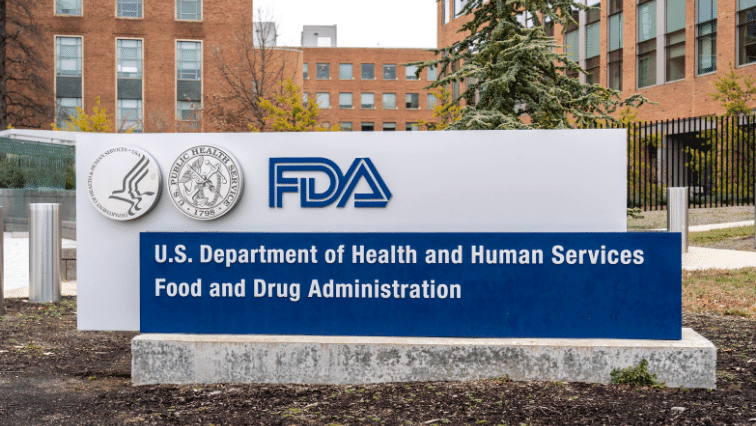The U.S. Food and Drug Administration (FDA) is one of the most important regulatory bodies in the world, overseeing the quality and safety of food, pharmaceuticals, medical devices, and related products. Compliance with FDA regulations is a mandatory requirement for Vietnamese businesses seeking to access the U.S. market.
An overview of the FDA
The Food and Drug Administration (FDA), under the U.S. Department of Health and Human Services, is responsible for supervising and controlling the safety of food, pharmaceuticals, medical devices, cosmetics, biological products, and other related goods to protect public health.
The FDA sets rigorous standards and regulations to ensure that products circulating in the U.S. market are safe, effective, and compliant. Businesses wishing to export food, drugs, or medical devices to the U.S. must comply with the FDA’s inspection, licensing, and monitoring requirements.
FDA compliance requirements
The FDA enforces strict compliance requirements for various types of products, including food, pharmaceuticals, medical devices, and cosmetics. Key compliance requirements include:
1. Food
Regulatory compliance: Food companies must follow FDA rules on food safety, labeling, and manufacturing.
HACCP standards: Seafood and juice products must comply with Hazard Analysis and Critical Control Points (HACCP) to ensure safety.
Good Manufacturing Practices (GMP): Manufacturing facilities must adhere to GMP to ensure food quality and safety.
Labeling: Product labels must accurately and fully disclose ingredients, nutritional content, and allergen warnings.
2. Pharmaceuticals
Pre-market approval: New drugs must be approved by the FDA before being marketed.
Current Good Manufacturing Practices (cGMP): Pharmaceutical companies must comply with cGMP to ensure drug quality and purity.
Adverse event reporting: Companies are required to report any serious adverse effects of drugs to the FDA.
Labeling: Drug labels must provide accurate dosage instructions, usage directions, and warnings.
3. Medical Devices
Device classification: The FDA classifies devices based on associated risks.
Premarket approval or clearance: High-risk devices require FDA approval, while lower-risk devices may go through the 510(k) clearance process.
Good Manufacturing Practices (GMP): Manufacturers must follow GMP to ensure the quality and safety of medical devices.
Adverse event reporting: Manufacturers must report any adverse incidents involving their devices to the FDA.
4. Cosmetics
Ingredient safety: Cosmetic companies are responsible for ensuring the safety of their product ingredients.
Labeling: Cosmetic labels must include accurate ingredient lists and usage instructions.
Adverse event reporting: Companies must report serious adverse reactions of cosmetics to the FDA.
FDA compliance assessment
An FDA compliance assessment determines whether a company or product meets the U.S. FDA’s regulatory requirements. For companies producing or selling FDA-regulated products such as food, drugs, medical devices, and cosmetics, FDA compliance is critical.
Objectives of FDA compliance assessment
- Ensure consumer safety: The FDA sets strict standards to protect public health.
- Maintain product quality: Compliance assessments help ensure products meet quality standards.
- Avoid legal actions: Non-compliance may result in warnings, recalls, or financial penalties.
- Access the U.S. market: FDA compliance is a prerequisite for entering the U.S. market.
Steps in an FDA compliance assessment
- Identify applicable regulations for the specific product or company.
- Review documentation and records to ensure alignment with FDA requirements.
- Inspect facilities to verify compliance with FDA standards.
- Examine products to ensure they meet FDA’s safety and quality standards.
- Report assessment results and identify areas for improvement.
Opportunities for Vietnamese businesses
Complying with FDA regulations presents numerous opportunities for Vietnamese enterprises, particularly in the context of global economic integration. Key opportunities include:
1. Market expansion
The U.S. is one of the largest and most demanding consumer markets. Achieving FDA certification enables Vietnamese businesses to access this market, opening broad export potential for food, pharmaceuticals, medical devices, and cosmetics.
2. Enhanced brand reputation
FDA certification signifies product quality and safety, which enhances corporate reputation and builds consumer trust domestically and internationally. With increasing consumer awareness of product safety, FDA certification becomes a significant competitive edge.
3. Improved competitiveness
Complying with FDA standards requires businesses to elevate their production quality, management systems, and quality control processes, thereby improving their competitiveness in global markets. FDA-certified companies are better positioned to form partnerships and expand business networks.
4. Sustainable development
FDA compliance helps protect consumer health and the environment, contributing to the sustainable growth of both businesses and the national economy.
Potential Sectors:
- Food: Vietnam’s agricultural, seafood, and processed food sectors have high potential for U.S. export if FDA food safety standards are met.
- Pharmaceuticals: Vietnam’s growing pharmaceutical industry has opportunities to export to the U.S. when quality and safety standards are satisfied.
- Medical Devices: The U.S. medical device market is vast and offers opportunities for Vietnamese producers.
- Cosmetics: With proper safety and labeling compliance, Vietnamese cosmetics can also enter the U.S. market.
Challenges for Vietnamese businesses
While offering many opportunities, FDA compliance poses significant challenges, particularly for small and medium-sized enterprises (SMEs) in Vietnam.
1. Investment costs
Meeting FDA standards requires substantial investment in infrastructure, equipment, technology, and workforce training—often a major burden for SMEs.
2. Resource and knowledge gaps
Many Vietnamese companies lack the necessary resources and specialized knowledge about FDA regulations. Understanding and implementing these rules requires time and effort that not all businesses can afford.
3. Language and cultural barriers
FDA regulations are issued in English, making them harder for Vietnamese businesses to access and comprehend. Cultural differences in business practices can also hinder collaboration with U.S. partners.
4. Stringent inspection and evaluation
The FDA conducts rigorous inspections and evaluations. Companies must meet high standards of quality and safety, which requires professional and thorough preparation.
5. Constant regulatory updates
The FDA regularly updates its regulations, requiring businesses to closely monitor changes and adapt accordingly. Keeping up with and applying new requirements can be challenging.
6. Intense competition
The U.S. market is highly competitive. Vietnamese companies must deliver high-quality products at competitive prices while competing with experienced global players.
Industry-Specific Challenges:
- Food: Meeting food safety standards, especially regarding chemical and microbiological residues; complying with labeling and traceability requirements.
- Pharmaceuticals: Ensuring drug quality and safety; conducting clinical trials in accordance with international standards.
- Medical Devices: Meeting stringent safety and efficacy standards; implementing robust quality control processes.
Recommendations for Vietnamese businesses
Though demanding, FDA compliance is a valuable opportunity for Vietnamese businesses to expand and develop sustainably.
✅ Thoroughly understand FDA regulations applicable to your products.
✅ Raise awareness of FDA requirements across your organization.
✅ Invest in quality management systems and skilled personnel.
✅ Seek support from consultants, business support organizations, and government agencies.
✅ Build relationships with U.S. partners.
Conclusion
Complying with FDA regulations brings substantial benefits but also poses significant challenges for Vietnamese enterprises. To succeed, businesses must prepare carefully and develop clear strategies to meet stringent standards while seizing opportunities in the U.S. market.





